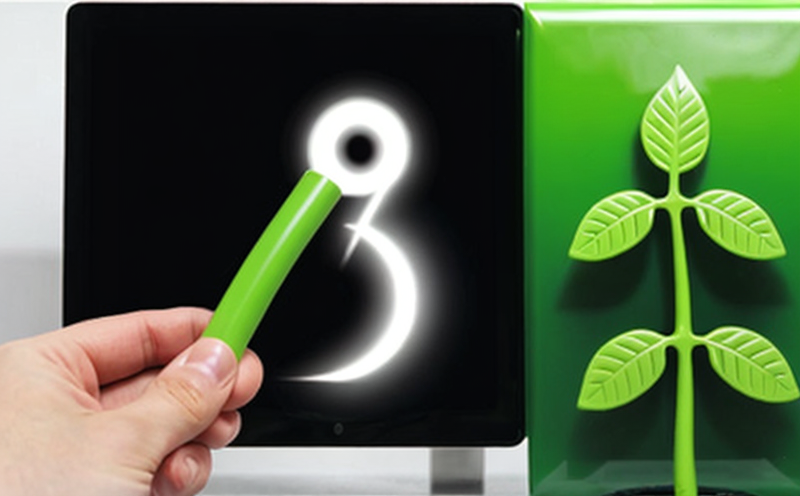EN 16247-3 Industrial Energy Efficiency Audits
The EN 16247-3 industrial energy efficiency audit standard is a comprehensive framework designed to help organizations identify, measure, and optimize their energy consumption in industrial settings. This internationally recognized standard sets out the requirements for conducting thorough audits that contribute significantly to enhancing sustainability practices and reducing operational costs.
The process outlined in EN 16247-3 involves several key steps including data collection, analysis, and reporting, all aimed at pinpointing areas where energy efficiency improvements can be made. Compliance with this standard ensures that organizations are adhering to best practices recognized globally, which is crucial for maintaining a competitive edge in the market. By leveraging EN 16247-3, businesses not only enhance their environmental performance but also contribute positively to broader societal goals related to resource conservation and climate change mitigation.
Organizations that undertake an audit based on this standard benefit from a structured approach that helps them understand their current energy consumption patterns. This knowledge is instrumental in formulating actionable plans aimed at reducing waste, improving productivity, and ultimately lowering overall operating costs. The detailed insights gained through such audits enable companies to make informed decisions about investments in new technologies or processes that promise higher returns on investment (ROI).
Moreover, adhering to EN 16247-3 can open up opportunities for certification and recognition from various stakeholders within the industry. This includes potential partners looking for reliable suppliers who demonstrate strong commitment towards sustainability initiatives. For example, companies may gain access to preferential terms offered by utility providers or receive grants aimed at funding energy-saving projects.
The methodology prescribed by EN 16247-3 has been validated through numerous case studies across different sectors, demonstrating its effectiveness in delivering tangible results. It encourages continuous improvement by providing a roadmap for ongoing monitoring and evaluation of implemented measures. This ensures that even after initial audits, there is always room for further optimization based on changing conditions or emerging technologies.
By choosing to conduct an EN 16247-3 audit, organizations commit themselves to rigorous assessment of their energy usage, which serves multiple purposes beyond mere compliance with regulatory requirements. It fosters a culture of sustainability throughout the organization while providing stakeholders with reassurance regarding responsible corporate behavior.
Why Choose This Test
- Comprehensive Approach: EN 16247-3 provides a holistic view of an industrial facility’s energy consumption, covering all aspects from production processes to ancillary services like lighting and HVAC systems.
- International Recognition: Compliance with this standard is widely accepted internationally, offering credibility when seeking partnerships or funding for energy-saving initiatives.
- Data-Driven Insights: The audit process collects detailed data on current consumption levels which can then be used to identify specific areas requiring attention and prioritize improvements effectively.
- Certification Opportunities: Successfully completing an EN 16247-3 audit not only enhances reputation but also opens doors for certification that can be leveraged for marketing purposes or when bidding on contracts.
Competitive Advantage and Market Impact
The implementation of EN 16247-3 Industrial Energy Efficiency Audits can provide organizations with a significant competitive advantage in several ways. Firstly, by identifying inefficiencies within industrial processes early on, companies can implement targeted solutions aimed at reducing energy consumption without compromising output quality or quantity.
This proactive approach helps firms stay ahead of regulatory requirements and emerging trends in the industry, ensuring they remain relevant even as market conditions evolve over time. Moreover, adopting this standard demonstrates a clear commitment to sustainability principles that resonate well with eco-conscious consumers who increasingly favor brands committed to reducing their carbon footprint.
From an operational perspective, reducing energy costs translates directly into improved profitability margins for industrial enterprises. With ongoing improvements driven by continuous assessments facilitated by EN 16247-3 audits, organizations can expect long-term savings which contribute significantly towards overall business growth.
The audit process also plays a crucial role in maintaining compliance with relevant international standards and regulations governing energy efficiency. This ensures that companies operate within legal boundaries while simultaneously promoting good practice among peers across various sectors.
In summary, embracing EN 16247-3 offers more than just technical benefits; it fosters an environment conducive to innovation and continuous improvement, ultimately contributing positively towards the organization’s long-term success in both economic and environmental terms.
Use Cases and Application Examples
EN 16247-3 Industrial Energy Efficiency Audits are applicable across a wide range of industrial sectors where energy consumption plays a significant role in operational costs. Here, we explore some specific use cases and application examples that illustrate how this standard can be effectively utilized:
- Manufacturing Plants: In large-scale manufacturing facilities, EN 16247-3 audits help identify inefficiencies in processes such as heating, cooling, and refrigeration systems. By optimizing these areas, manufacturers can significantly reduce their carbon emissions while simultaneously cutting down on utility bills.
- Petrochemical Industries: Given the high energy demands of petrochemical plants, conducting regular EN 16247-3 audits allows operators to monitor their equipment performance closely. This ensures optimal functioning and prevents unexpected breakdowns that could lead to costly downtime.
- Tiered Cooling Systems: For facilities equipped with tiered cooling systems, the audit helps in determining the most efficient settings for each level of cooling required throughout different seasons or operational phases. Such optimizations can yield substantial savings over time.
- Solar Power Plants: While solar power generation itself is inherently sustainable, EN 16247-3 audits help solar plants ensure that ancillary systems like inverters and transformers are operating efficiently. This maximizes the amount of electricity produced per unit input, thereby enhancing overall plant performance.
In each case, the audit process provides valuable insights into where improvements can be made, leading to more sustainable operations that align with broader corporate sustainability goals.





